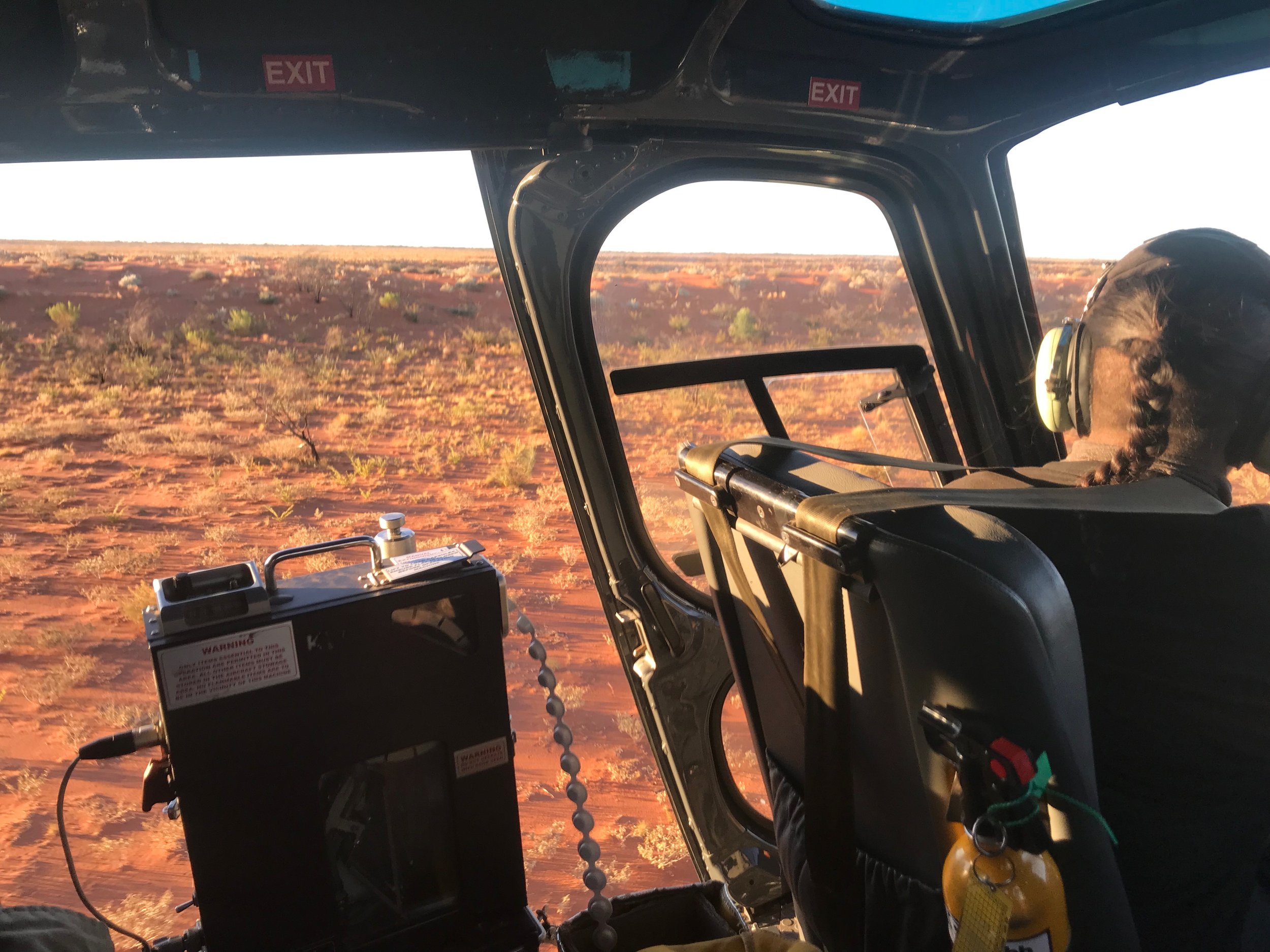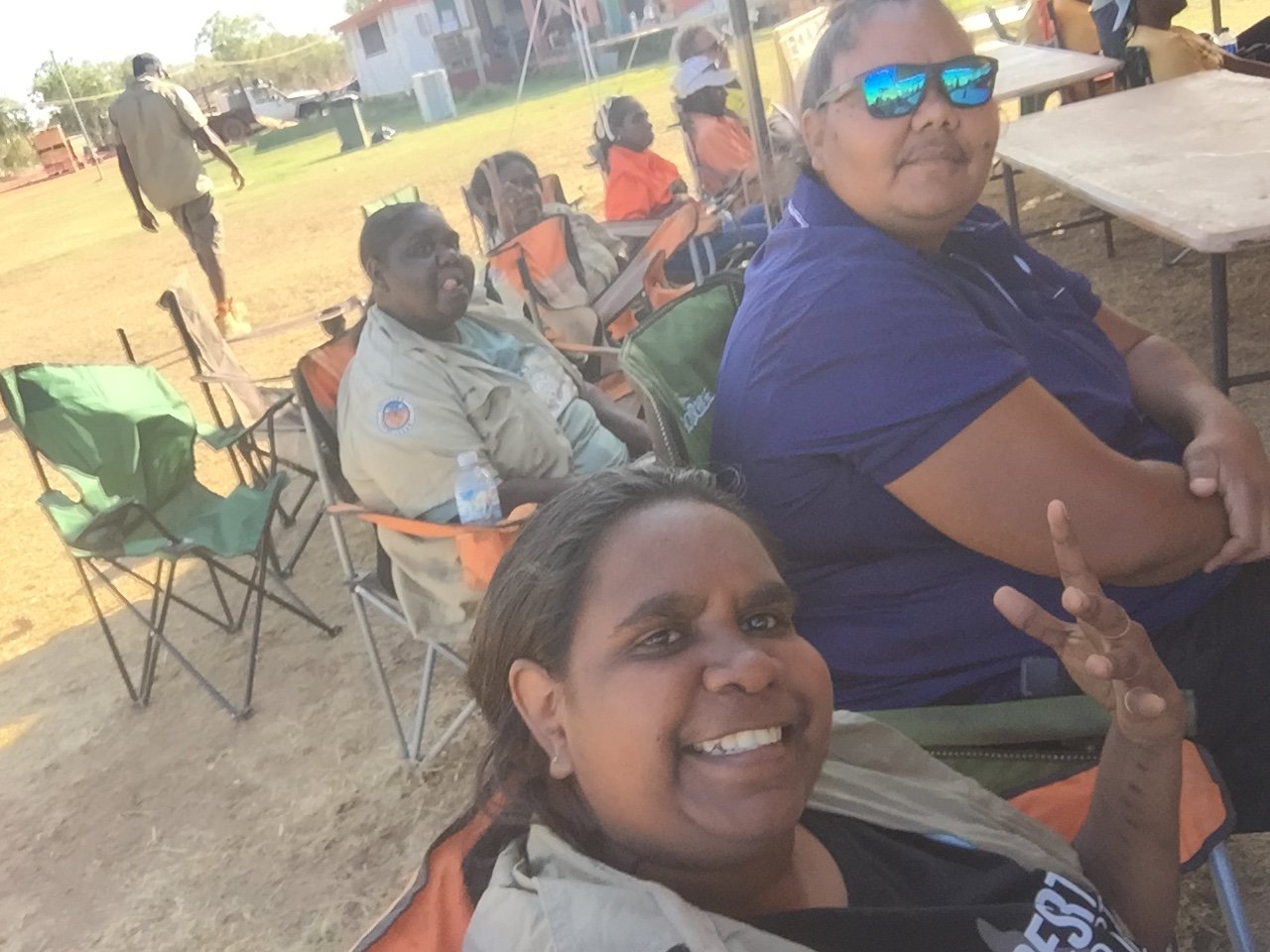
Rangers
Are you interested in our ranger work? Check our 2024 Ngurrara Rangers Newsletter, clicking here.
You would be hard pressed to find a bunch of people who love their jobs as much as our Ngurrara Rangers! We look after the Ngurrara native title area as well as the Warlu Jilajaa Jumu Indigenous Protected Area (IPA) in accordance with cultural protocols and guided by Ngurrara Traditional Owners.
A key area of our work is managing jila and jumu - freshwater springs and soaks - such as Wili, Purlawalla, Pirnini, Kurnujarrti and Lumpu Lumu. On a fire trip last year in 2021, we also visited the remote jila sites of Wuriyarra, Pikurangu and Paunturr. We keep these sites healthy through burning, cultural maintenance, monitoring water quality and depth, and weeding.
Practising right-way-fire is an important aspect of our on-country work. It’s undertaken after extensive consultations, and careful and thorough planning. We work from a Fire Management Plan which has been developed in consultation with Traditional Owners. In 2021, after signoff from twenty-five Mangala Traditional Owners, we completed a fixed wing burn on the Mangala side of the Ngurrara native title area. We also practised aerial burning in inaccessible areas to mimic traditional mosaic burning patterns and supported Yi-Martuwarra Ngurrara to work with pastoralists and communities to help limit late season wildfires entering pastoral lands. Right-way fire helps prevent late, hot fires, and it also helps protect the habitat of threatened species, such as the night parrot and the greater bilby.
In May 2021, in conjunction with Environs Kimberley and supported by the Indigenous Desert Alliance, we completed a biodiversity survey at Kuduarra (Well 46) to capture data on how right-way fire impacts native animals. We set up traps to monitor the presence of threatened mammal species, such as the bilby and hopping mouse, and we’re keeping an eye on potential predators of these species as well. Our stakeholders are assisting us to develop strategies for threatened mammal protection, as well as to understand the ecological uses of native flora.
The Indigenous Desert Alliance showcased the work of the Ngurrara Rangers in this great short film. You can watch via Facebook by clicking here or the image below.
In previous years, management of the Canning Stock Route and checking visitor permits has been a large part of our work. The impact of COVID has meant there has been limited tourism for the last two years. We’ve made the best of this situation by continuing to maintain our signage and carrying out weeding and site repairs. You can read more about our work on the Canning Stock Route and the Kuju Wangka committee here.
Our rangers also inspect the fences around cultural and burial sites, including at Manganumpi and Timber Creek, where massacres of our people took place. We perform any maintenance that is needed.
We’re very proud to have a strong women rangers’ program! In 2021, our rangers undertook a cultural exchange with the Warrakuna women and participated in a two-way science workshop. Following the cancellation of Kimberley Land Council’s Women’s Ranger Forum we hosted some of the other women’s ranger groups and took them on a tour of cultural and heritage sites. We’ve continued to build on our relationship with Marnin Studios to develop garments coloured with bush dyes and other bush-inspired products that can be sold to visitors. This is part of a bigger vision to potentially set up a business enterprise.
Over the last twelve months we’ve engaged the local community to work together to reduce the damage caused by feral animals. We’ve also been educating the community about feral animal control and native animal health through talks in schools (including for NAIDOC week), our Healthy Country Steering Committee, our website and our social media updates.
The hands-on practical work of our rangers—from fire management, to maintenance, to feral animal management—is complemented through formal and accredited training. In the last year, three of our rangers have successfully completed Identifying Plants and Animals (Certificate II), five rangers completed Transport and Store Chemicals (Certificate II), one ranger completed Transport and Store Chemicals (Certificate III), and five rangers completed Environmentally Sustainable Work Practices (Certificate III). Our rangers have also undertaken tourism training and chemical handling training.
Finally, our data, photographs, partner reports, plant species, traditional stories, and songs, are collated and stored in a cultural database which utilises the FULCRUM data capturing platform. The knowledge in this database supports the development of site management plans, and will also be useful for future Ngurrara rangers, and future generations.
If you are interested in hiring our rangers or finding out more, please contact us by emailing: peter@yanunijarra.org.au
Back in 2016, we were hosted by the Kiwirrkarra rangers as part of the Ninu Festival. 'Ninu' is a word for bilby, and this festival was all about ways to monitor bilbies in the desert, and ways to protect them. The bottom left picture, will take you to a short trailer featuring Ngurrara Head Women's Ranger Chantelle Murray. The bottom right picture will give you an overview of the whole project. We hope you enjoy!





